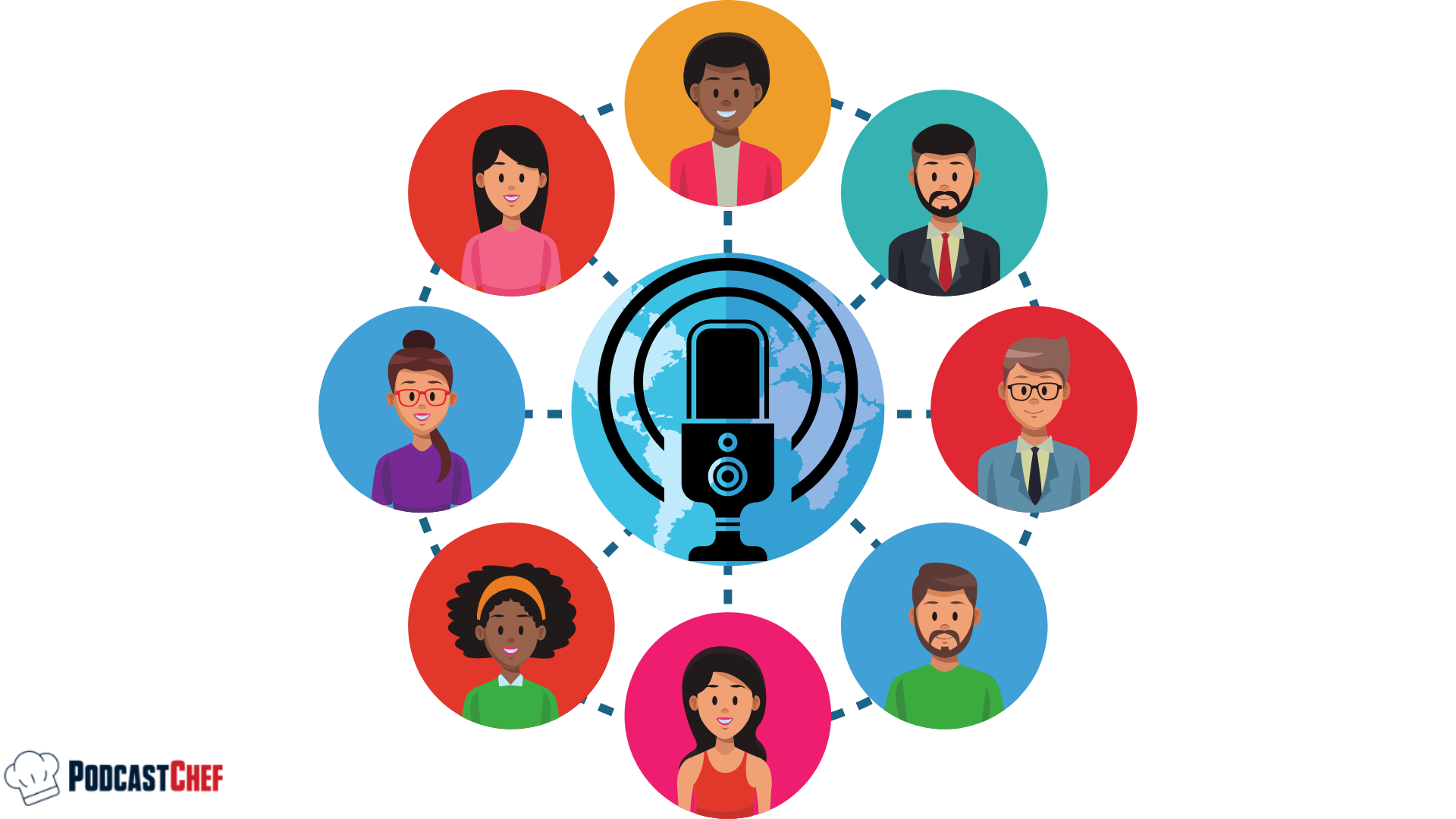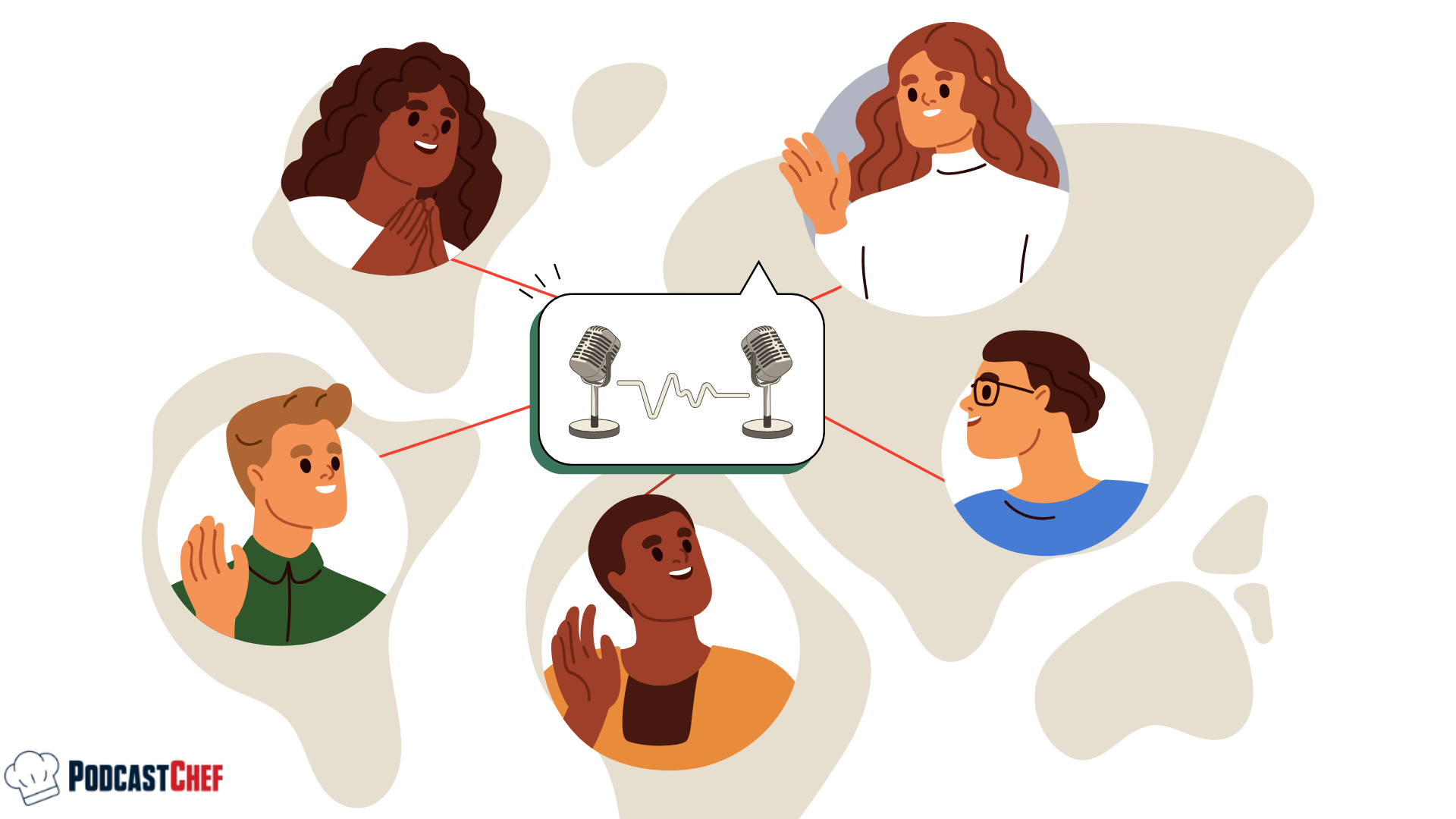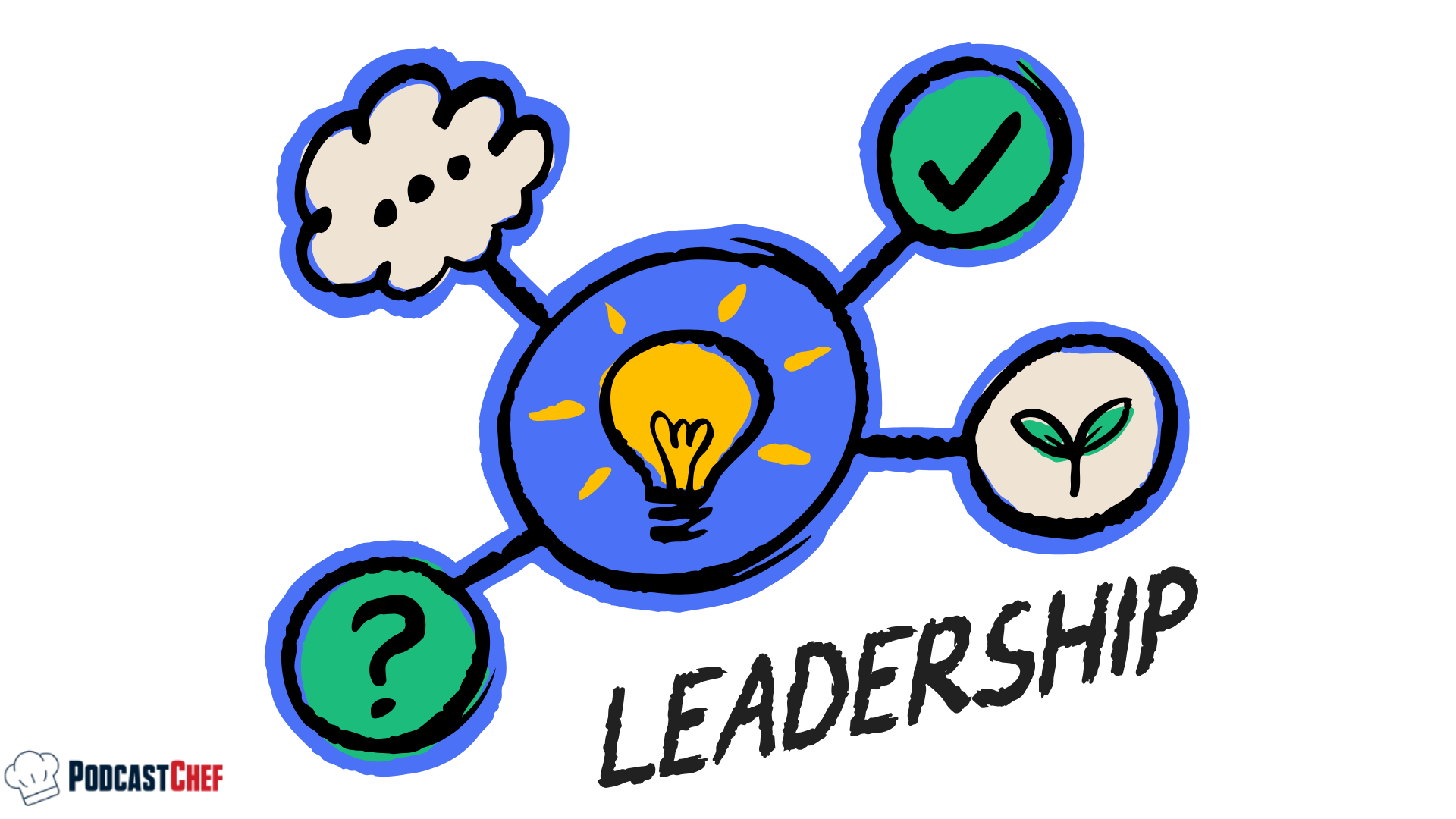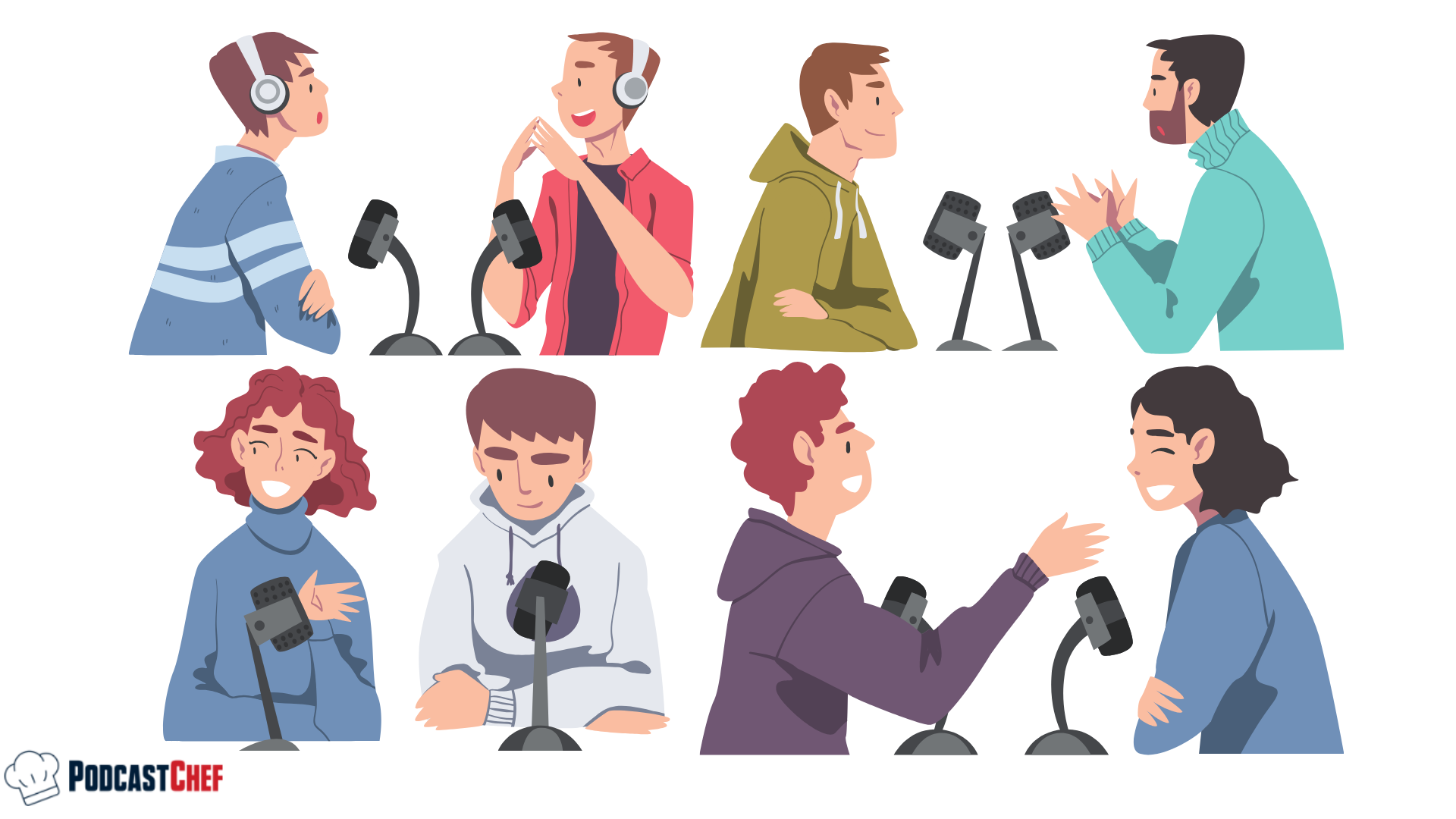B2B Podcasting for People Who Hate Networking: An Effective Alternative for Business Growth

Networking can feel like a chore, especially in the B2B world where connections are crucial. Enter podcasting—a game changer for those who loathe the handshake hustle. This article cuts through the networking noise, showcasing how b2b podcasting for people who hate networking can foster impactful business relationships and fuel growth, all from the comfort of your conversation. Discover how to harness the power of podcasting to network on your terms.
Key Takeaways
- Podcasting offers an appealing networking alternative for professionals who dread traditional networking by allowing for targeted, authentic connections with industry players and potential clients, in a comfortable and controlled environment.
- B2B podcasting has unique advantages such as establishing thought leadership, attracting the right business audience aligned with your expertise, and providing a time-efficient method for networking and content marketing.
- Launching a successful B2B podcast entails clearly defining its purpose and goals to align with your business objectives, finding and collaborating with guests that enhance credibility, and actively promoting the podcast to reach a wider audience.
The Power of Podcasting for Networking-Averse Professionals
Networking events can be daunting for those who are not fond of networking. The forced nature of these events, the stress of approaching people, and the lack of time to attend can lead to a neglect of networking altogether. But what if you could network from the comfort of your own home or office, without having to navigate the awkward strategies of traditional networking events? Podcasting presents such an opportunity. With its ability to reach a wide audience, connect with experienced industry individuals, and provide opportunities for sponsorship, podcasting has transformed the way we network.

Psychological barriers are one of the main reasons why people hate networking. The feeling of being morally and physically impure, the fear of approaching people, and the lack of time to attend networking events are all factors that can deter individuals from networking. However, through podcasting, these barriers can be overcome. Podcasting enables professionals, especially people who hate networking, to direct their networking efforts towards the right individuals, like potential clients and referral sources, thus expanding their professional network while avoiding the typical discomforts of traditional networking that make people hate networking.
Overcoming Networking Challenges
Podcasting is beautiful as it creates a comfortable environment for networking. Here are some ways podcasting eliminates the need for the awkward strategies often associated with traditional networking:
- Establishing a quiet and isolated space for recording
- Encouraging collaboration with guests and co-hosts
- Nurturing strong connections between hosts and guests
In this controlled environment, meaningful conversations can flourish, allowing hosts to connect with their audience on a deeper level.

In addition, podcasting fosters authenticity and trust, enabling controlled and meaningful conversations. It humanizes individuals and organizations for genuine conversations, moving away from the often impersonal nature of long ago networking methods. As a networking tool, podcasting allows individuals to:
- Customize their content for a specific niche and audience
- Collaborate with relevant guests and co-hosts
- Actively engage with podcast communities and listeners
This targeted approach to networking can help entrepreneurs promote their services more effectively through content marketing at a networking event.
Building Genuine Connections
Podcasting also holds power in building genuine connections. B2B podcasts enable genuine storytelling and interaction with listeners by:
- Humanizing the brand
- Showcasing interviews with industry leaders
- Organizing roundtable discussions
- Conducting in-depth explorations of the industry
These authentic conversations extend beyond the typical networking talk, ensuring that nothing goes wrong in fostering a two-way interaction that nurtures genuine connections.

Various strategies can be employed by podcast hosts to strengthen these genuine relationships, such as:
- Understanding their audience
- Maintaining authenticity and consistency in interactions
- Providing the interview format beforehand
- Promoting guest engagement
- Generating supplementary content such as blog posts related to the episode
- Initiating follow-up interactions and suggestions after the interview
This approach turns guests into friends and long-term connections, further enhancing the networking benefits of podcasting.
Advantages of B2B Podcasting for Networking
After establishing the power of podcasting for professionals averse to networking, let’s explore the unique advantages brought by B2B podcasting. B2B podcasting can help:
- Establish thought leadership by showcasing a professional’s expertise and making an impact in the business world
- Attract the right business audience by offering valuable insights and expertise through podcasting content
- Ensure professionals attract listeners who are genuinely interested in their industry knowledge, without the need for any other thing.
Furthermore, podcasting is considered time-efficient due to its ability to eliminate the need for in-person meetings, making it convenient to connect with industry experts and potential clients.
Establishing Thought Leadership
Establishing thought leadership is one of the key advantages of B2B podcasting. By showcasing expertise, promoting innovative ideas, and building trust with the audience, podcasting allows professionals to position themselves as leaders in their field. This not only enhances their professional reputation but also attracts a more engaged and loyal audience.

When developing a thought leadership-focused podcast, there are several essential components to consider. These include:
- Unique positioning
- Understanding the audience
- Content creation
- Consistency and regularity
- Leveraging guest experts
By focusing on these elements, professionals can ensure that their podcast delivers valuable, engaging, and authoritative content, thereby establishing them as thought leaders in their industry.
Attracting the Right Audience
Attracting the right audience is another significant advantage of B2B podcasting. By offering valuable insights and expertise, professionals can attract listeners who are genuinely interested in their industry knowledge. This ensures that their podcast reaches the right audience, which may include potential clients and collaborators.
There are several strategies that professionals can use to attract the right audience for their B2B podcast. These include:
- Optimizing podcast episodes for specific keywords
- Submitting the podcast to Google Podcasts
- Incorporating keywords into episode descriptions
- Actively seeking reviews
By implementing these strategies, professionals can ensure that their podcast reaches its intended audience and contributes to their business growth.
Time-Efficient Networking
Especially for busy professionals, time is a precious commodity. Traditional networking methods, such as attending networking events, can be time-consuming and often yield limited results. Podcasting, on the other hand, offers a time-efficient way to network. With the typical duration of around 40 minutes to record an episode, podcasting allows professionals to connect with industry experts and potential clients in a focused and efficient manner.

The format of B2B podcast episodes, typically ranging from 30 to 42 minutes, also contributes to their time efficiency. This concise format accommodates the time constraints of busy professionals, making podcasting an effective medium for focused networking conversations. Furthermore, podcasting provides an efficient platform to create and distribute content widely, facilitating networking in a scalable manner.
Launching Your B2B Podcast: Tips and Strategies
Having explored the benefits of B2B podcasting for networking, let’s consider how to launch a successful B2B podcast. This involves defining your podcast’s purpose and goals, finding the right guests and collaborators, and effectively promoting your podcast. By following these steps, you can ensure that your podcast not only provides value to your audience but also contributes to your business growth.
Defining Your Podcast’s Purpose and Goals
Defining the purpose and goals is the first step in launching a successful B2B podcast. This involves considering how your podcast can serve your business objectives and provide value to your audience. For example, your podcast’s purpose could be to establish thought leadership, share industry expertise with a larger audience, or tell your unique brand story.

Once you have defined your podcast’s purpose and goals, it’s critical to ensure that these align with your overall business objectives. By doing so, you can ensure that your podcast effectively drives your business and establishes genuine connections with your target audience.
Finding the Right Guests and Collaborators
For a successful B2B podcast, it’s essential to find the right guests and collaborators. This involves identifying industry experts and influencers who can provide valuable insights and engaging content. By collaborating with these individuals, you can enhance your podcast’s credibility and build trust with your audience.

When approaching potential guests and collaborators, it’s important to consider their relevance to your podcast’s theme and the value they can bring to your audience. In addition, it’s crucial to negotiate terms clearly and professionally, ensuring that both parties understand and agree to the collaboration.
Promoting Your Podcast
To reach a wider audience and achieve your podcasting goals, it’s crucial to promote your podcast. There are several strategies you can use to promote your podcast, including leveraging your company website, social media, and email marketing. By using these channels, you can increase the visibility of your podcast and attract a larger audience.

In addition to these channels, you can also leverage your guest’s audience, create organic social posts to announce new episodes, and utilize paid media for promotion. By implementing these strategies, you can effectively promote your podcast and reach your target audience.
Case Studies: B2B Podcasts That Excel at Networking
Let’s examine some case studies of successful B2B podcasts to demonstrate the power of podcasting as a networking tool. These podcasts, such as Podcast Chef, The Modern Selling Podcast, Press 1 for Nick, 30 Minutes to President’s Club, The McKinsey Podcast, IdeaCast, The Product Podcast, Sales Gravy, Radically Transparent, Behind the Post, B2B Growth, and The Podcast Chef, have excelled in networking by inviting influential and high-quality guests, addressing niche areas within the podcasting landscape, providing educational content to the audience, and creating transcripts for each episode to enhance accessibility and reach.
These case studies showcase the effective networking strategies that these successful B2B podcasts have implemented. By learning from these examples, you can gain insights into how to leverage podcasting for networking and apply these strategies to your own podcast.
Overcoming Common Podcasting Challenges
Podcasting, like any endeavor, comes with its own set of challenges. These include technical issues, time management, and content creation. Overcoming these challenges is essential for maintaining a successful B2B podcast. For instance, to resolve common technical issues such as audio quality problems, it’s recommended to use high-quality microphones, reduce background noise, ensure consistent audio levels, and make test recordings to identify issues.
Effective time management is another crucial aspect of successful podcasting. Strategies for this include:
- Understanding and prioritizing tasks
- Creating a long-term plan
- Organizing the week in advance
- Following time-saving tips that streamline the production process.
Finally, developing consistent podcast content is key, and this can be achieved by:
- Establishing a publishing schedule
- Developing a content strategy
- Choosing topics of genuine interest
- Ensuring regular episode releases.
Measuring the Success of Your B2B Podcast
It’s important to measure the success of your B2B podcast once it’s up and running. This involves tracking key performance indicators such as audience growth, engagement, and conversion rates. By monitoring these metrics, you can ensure that your podcast is effectively contributing to your business growth.

Listener engagement for a B2B podcast can be measured through a variety of methods including direct feedback, download numbers, unique listener counts, completion rates, social media interactions, website traffic related to the podcast, consumption rates, return on investment (ROI), and leads obtained. Furthermore, effective conversion tracking metrics include monitoring social media engagement, downloading activity, website traffic tied to the podcast, setting and observing conversion goals, assessing listenership and consumer behavior, demographic data, and levels of engagement. By tracking these metrics, you can assess the performance of your podcast and make necessary adjustments to enhance its success.
Summary
In conclusion, podcasting presents a powerful alternative to traditional networking methods, especially for those who dislike networking. By harnessing the power of podcasting, professionals can overcome networking challenges, build genuine connections, establish thought leadership, attract the right audience, and achieve time-efficient networking. With careful planning, collaboration with the right guests, effective promotion, and continuous measurement of success, a B2B podcast can serve as a valuable tool for business growth. So, why not give podcasting a try? You might just find that it transforms the way you network.
Podcast Chef is here to help!
We’re a white glove, all inclusive b2b podcasting company. We provide a broad range of services from podcast setup and production, through to guest booking and audience engagement. Our team would love to learn more about your goals and see if a podcast can help! Click here to schedule a free consultation and demonstration of some of the results we’ve been able to achieve.
Frequently Asked Questions
How do you network for people who hate networking?
Networking for people who hate networking can be done through virtual platforms like Zoom chat, bringing a friend to events, and leveraging existing relationships with colleagues, friends, or mentors to expand your network. The key is to make it more comfortable and authentic for yourself.
How does podcasting overcome networking challenges?
Podcasting overcomes networking challenges by providing a comfortable environment for conversation and enabling meaningful interactions, which helps professionals connect with the right individuals.
What are the advantages of B2B podcasting for networking?
B2B podcasting provides advantages such as establishing thought leadership, attracting the right audience, and offering time-efficient networking opportunities. These benefits make it a valuable tool for networking in the business-to-business environment.
How can I promote my B2B podcast?
You can promote your B2B podcast through your company website, social media, email marketing, and by leveraging your guest’s audience. Consider using organic social posts to announce episodes and utilizing paid media for promotion.
What are some common podcasting challenges and how can I overcome them?
To overcome common podcasting challenges such as technical issues and time management, invest in high-quality microphones, reduce background noise, and prioritize tasks with a long-term plan and content strategy. These steps will help ensure consistent audio quality and effective time management for your podcast.